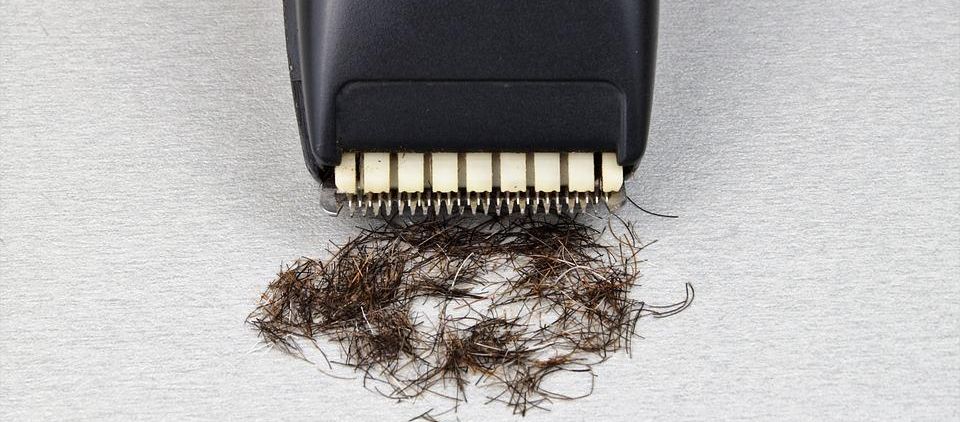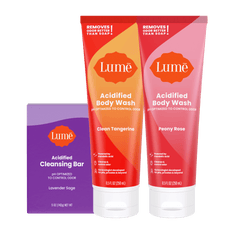
How to Manscape Your Downstairs
by Callie Sleper
You may have noticed that more and more celebrities and athletes nowadays are sporting less body hair than they used to. Likewise, as more men’s fashion magazines and male hygiene products promote it, “manscaping” is a rising trend that’s becoming hard not to notice.
Many guys choose to manscape because they think others will find it more attractive or they personally like it better. Still, there are those who consider it an unnecessary ritual to add to their self-maintenance routines, and they let all go!
If you still haven’t decided what your stance is on manscaping, if you’re just looking for more information about it, or if you’d like to know how to go about it in the healthiest way possible, you’ve come to the right place.
What is manscaping, you may ask?
If you’re not up to speed on the nuances behind the subject, fear not. Luckily, the Urban Dictionary is a great resource for keeping up on the trends! It defines manscaping as “A man’s grooming of his body hair. Like landscaping, but for the body.”
There are so many ways to go about manscaping. Lume is all about laying down facts so you can make empowered, informed decisions that best fit you. We want to emphasize the risks surrounding this enterprise since it’s not as widely discussed. Know that, whichever manscaping decision you come to, Lume has got you covered.
Chances are you have already “manscaped” without even realizing it. Shaving or trimming your facial hair or ears, nose hairs and eyebrows count, and if you want to get technical, even trimming the hairs on your head could be considered part of the art. You can take it all the way to less common areas such as your arms, legs, hands, and toes if that’s your style. Some prefer toe hair, while others choose to remove it. Who knew? You can really take this as far as you want to come up with your own “manscape manifesto.”
For now, let’s focus on what manscaping looks like everywhere else on your body: your back, chest, and groin.
Manscaping pros and cons.
Aesthetically and sensually, manscaping is in the eye of the beholder. You can get questionable statistics about public opinion surrounding the topic from magazines or companies looking to advertise manscaping-related products. However, the only opinion you need to go off is your own, and possibly any partners you have. Some feel trimming the bush makes the tree stand taller, while others love to keep it completely natural and earthy. There is no wrong answer here!
Let’s talk about the potential benefits of manscaping. For one, it could potentially make you feel or appear sexier (though the same could be said for a completely natural look– that’s, of course, up to personal preference!). Bare legs, chest hair, and even back hair can help serious athletes shave off slightly more time during races, according to some research. Who knew those little hairs have been slowing us down all this time? But, grooming “down there” doesn’t offer any better mobility, unless you are naked. Then of course, it might.
Hair anywhere on the body provides more surface area for bodily fluids and bacteria to hang out and create odor, so less hair also means less potential for body odor.
For those who shower infrequently yet sport hairless hardware, the good news is that it can leave pubic lice homeless. Going bare is also a medical necessity for some, especially those undergoing surgery... But then, would it be considered manscaping if you get shaved by the medical tech in the OR? Probably not the sexy kind.
On the other end of the spectrum, body hair can actually act as a buffer against abrasive friction during sex and from clothing. It also regulates body temperature by wicking away sweat in the heat and retaining warmth in the cold.
Body hair, especially near your loins, also works hard to attract sexual partners by holding on to the smell of pheromones. In this day and age, though, just a small amount of pheromones will do...
You may want to consider the benefits of keeping your natural hair intact - or at least some of it. The major concern behind ANY method that lessens hair anywhere is its potential to cause infection. Especially in the most sensitive pubic area, grooming is more likely to cause injury and infection. In fact, 24% of men injure themselves by practicing pubic hair pruning (generally in a minor way). You should also know that, if grooming creates an open sore– especially below the belt– it increases your risk of getting a sexually transmitted infection.
There are endless ways to go about manscaping. You could ‘scape one area and leave the other, or even get your partner to help in what could be a cute couple’s activity and trust exercise. Bring that up as a date night suggestion and test the response you get! You could even experiment with trimming one spot and shaving or waxing another, or any combination you can think of.
Let’s outline different common methods of shaping your ‘scape along with some safety precautions you should keep in mind.
If you’re going the razor route, make sure your blade is sharp and replaced often in order to prevent nicks. Nicks cause you to lose finesse points, and manscaping requires a steady hand! Electric razors are less likely to cause injury or infection, and one designed with smaller teeth for pubic hair is even better for use down there. It’s worth the money you’ll spend on a good razor to keep all of your parts intact.
Trimming is the method recommended by most doctors as it’s least likely to cause infection or inflammation. It also leaves hair soft when it’s a bit longer, preventing abrasive stubble. An electric razor (detailed above) or pair of scissors you have on hand will do the job. If using scissors, prep the blades with rubbing alcohol in case you come too close to the skin.
If you have a higher pain threshold and want to go bare, consider the torture of waxing to stay smoother longer. A professional wax greatly lessens your chances of getting infections and also looking like a patchwork quilt. Uncomfortable skin-lifting can result from waxing, especially in the thinner-skinned ball area, so be warned. On the other hand, many say the more often you wax, the less the likelihood of pain (I think they are lying) and infections.
If you’re going to shave everything off, shave in the direction of the hair. A common myth about shaving is that it causes hair to grow back coarser when, in reality, the hair seems that way because the softer tips of hair get cut and the resulting stubble leaves you itchy.
Here’s a tip: If going bare, trim the hair down to about 1cm first to increase effectiveness and decrease the pain of a shave or wax.
Tweezing is fun for people with hair-pulling compulsions, yet between the continual ingrown hairs, infections, and time spent doing this when you could be sleeping, it’s pretty counterproductive for most. If you’re set on plucking, put rubbing alcohol on the tweezers beforehand to reduce the chance of infection.
Hair removal creams are incredibly easy to apply, but keep in mind that what dissolves hair can also dissolve skin if it’s sensitive or left on for too long. This is particularly risky around your delicate (but manly) parts as it can result in chemical burns and severe irritation. When it comes to your manhood, you’ll have to weigh for yourself whether this one’s worth trying in that region.
Finally, laser hair removal and electrolysis are larger investments that offer removal of hair and the hassle many people associate with it. With these procedures, there is an option to thin hair out in case you’d still like to hold onto some. While electrolysis is permanent-ish, laser hair removal can keep hair at bay for a long period and require touch-ups to keep up with any regrowth. If this sounds right up your alley, make sure you do extensive research about the overall effectiveness and possible lasting side effects and check in with a trusted medical professional.
Artists take their time, why don’t you? If you’re manscaping, above all we advise you: DO NOT RUSH. No date, no matter how spicy, is worth a stint in the ER.
When using any product for grooming your drapery or carpeting, make sure the ingredients are safe for you. If you get a serious cut, seek immediate professional help. For minor cuts, clean the area with a mild soap and water, hold pressure with a towel, and apply an antibiotic ointment. Ideally, no injuries will occur while manscaping.
So, whether you choose a “bushier is better” or “the bald and the beautiful” look, you can maximize your prowess by minimizing all body odors with Lume Whole Body Deodorant. Just apply a trace amount anywhere you have external odor down there (where sweat and other fluids gather along your front and backside)... you get the idea.
Try Lume Deodorant Wipes when you're on the go and could use a little added odor protection, they are clinically proven to control odor for 24 hours.
Lume is a skin loving deodorant that's made for you to use up north and down south. And, when it comes to an empowered lifestyle, Lume’s got your back (as well as your pits and private bits) covered.
Recent Articles
- Your New Indulgence: Introducing Vanilla Bliss
April 04, 2025
- Feminine Hygiene Myths: A Tale As Old As Time
March 24, 2025
- Do Showers Control Body Odor?
March 18, 2025
- The Skin Loving Benefits of Mandelic Acid
February 28, 2025
- Why Is Acid In My Deodorant?
February 28, 2025
- What Are AHAs?
February 28, 2025
- 3 Helpful Tips For Getting Started
February 28, 2025
- Unlocking Smoother Looking Skin: Lume's Guide to Managing KP
January 29, 2025
- Drier Days Are In Your Pits’ Future!
January 15, 2025
- This Spray Slays
January 10, 2025
















